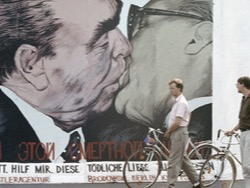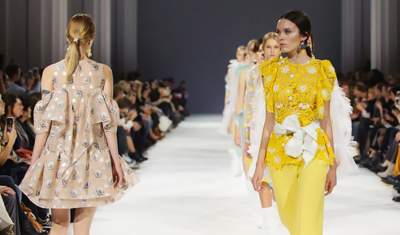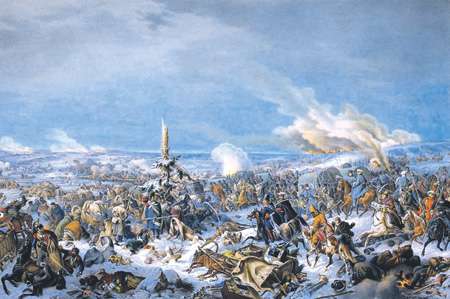
Berlin is once again becoming a gathering place for Russian talent, which was created in Berlin, a style admired the world of fashion. We photographed the new residents of Berlin, in the German and international fashion.
In the artist Dmitry Vrubel in the district of Prenzlauer Berg there are people full of hope. Every Saturday, the Russian with his partner Victoria invites you to his workshop. There are people who left Russia because under the prevailing political circumstances have more no homeland. Was once invited the political scientist Alexander Morozov, he had to say about the current situation in Russia. He came forward and said that the situation in Russia deprives him speechless, so he would just read one poem. Then one after another people came from the audience, and each read their own poem.
Writer Vladimir Kaminer was there too. Created in 90-e years “Russian disco (“Russendisko”), he made the Russian pop music in the capital hit. Kaminer is now working on his next book, “My mother, her cat and a vacuum cleaner”. For him this evening when he feels the Russian soul. “After all, Russian is all very poetic,” he says. “Everyone knows countless poems by heart.” From this point of view, the German capital is becoming more poetic, because it has become a gathering place for Russian immigrants. Kaminer said, “I feel like in the twenties. I constantly meet new people who left the country because they no longer feel safe.” For such people, Berlin is the first stop. “Germany for the Russian means Europe,” says Kaminer. “This is proof that it works”. According to him, in Berlin came primarily journalists, but also artists and intellectuals, those who sought freedom here.
Berlin as a symbol of freedom, a symbol of life you want to lead. And this is also reflected in the fashion. Currently, designers from Russia and countries that were under the influence of the former Soviet Union that are in demand like never before. Such designers as Demna Gvasalia (Demna Gvasalia), co-founder of the brand of the Brand and artistic Director of Balenciaga, in favor of a kind of wild, unbridled style of creating fashion. Their sample is a street style of East Berlin (Ost-Streetstyle), who prefer the young Russian in the Berlin districts Marzahn and Berlin — jackets “pilot”, sweatpants and cropped hair. Models of the new generation of designers hard, not attractive and are of direct relevance to Germany and its capital. For example, when shown a yellow t-shirt with the inscription DHL or coats on the backs of which shines the inscription POLIZEI. On one dress from the Brand was the logo of the legendary Berlin bar for homosexuals, “Ficken 3000”. This Vetements fashion house in Paris, which is looking for your ideas in Berlin.
Berlin and Russia, it is a relationship with a rich tradition. The town had a lot of Russian periods. When Russia after the first world war, October revolution, thousands of Russians came to Berlin. In a city flocked by those who had reason to fear the red Army. They were soldiers, aristocrats and intellectuals. They worked as taxi drivers or curl up at home cigarettes to to live in Berlin. In the early 20-ies of the city’s population of 300 thousand Russian. Around Wittenbergplatz having little Saint-Petersburg, which was called Charlottengrad, a city built from the ruins of bourgeois Russian society.
In Berlin going to immigrants until they have gone to other European cities or just don’t become sedentary Berliners. Many aristocrats had international connections and could count on the assistance, also in the German feudal circles of the Bolsheviks also hated. When the Russians learned that the old order in Russia was defeated, they built in Berlin, the Russian-Orthodox Church, opened their own restaurants and tennis clubs. The city was Russian book cafes, Russian bakeries, and Russian Newspapers.
The writer Vladimir Nabokov also lived a long time in Berlin: from 1922 to 1937. Not to say that he loved the city, but Berlin has influenced his early work, where there are wonderful descriptions of the capital. Nabokov married in Berlin, and here was born his son.
The town had one big advantage that today a lot of value in him: he gave all to live. In Berlin, the Russians were able to stay among their own. With its four million inhabitants, Berlin was at that time one of the largest cities in the world. And Berlin provide enough space for each culture. From time to time in Russian publishing houses in Berlin were published more books than in Moscow. This is the first time the Russians made Berlin an international city.
After the second world war the Eastern part of the city was simultaneously a part of Russia. To this day, demonstrate remarkable buildings. In Russian Bombast is Stil built the Karl Marx Allee, cafe “Moscow”, the roof of which is adorned with the layout of the satellite. And, of course, the TV tower, the symbol of Berlin. According to the original plan of its faceted bowl was a night to glow red as a socialist greetings to Moscow to the West.
Today, the Russian Diaspora in Berlin is not composed of fugitive aristocrats or the military. But still people who seek a better life. About 200 thousand Russian-speaking people live in Berlin. On the one hand, that many of those who remained in Berlin after the era of the GDR. They need to be counted thousands of Jewish settlers. And even those Russians who chose Berlin to be his new home or homeland for some time. Among them, students, artists and those who feel themselves in Russia today, disadvantaged.
Including people like Dmitry Vrubel. As an artist he became a famous picture, which he painted on the Berlin wall. The painting depicts Honecker and Brezhnev, who kiss passionately. Vrubel six years living in Berlin. “The political art I in today’s Russia already could do,” he said. In the old country it happens very rarely.
If you look closely, in Berlin, everywhere you will find the influence of Russian culture. There are Russian bars, restaurants, baths and shops with titles such as “Bucovina”, “Matryoshka” and “Samovar”, which are products of the old Soviet Empire: Riga sprats, Kamchatka crabs, Armenian cognac. There’s a local Russian newspaper and a Russian radio station.
The German capital a special role. It is located between the East and West. With its categorical architecture, its mess, its merciless winters and tireless nightlife, it is Berlin that has become a source of inspiration for a new generation of designers, which now are changing the international fashion world. First of all, gosh Rubchinskiy (Gosha Rubchinskiy) and Demna Gvasalia (Demna Gvasalia). Gvasalia, Georgians with a German passport, is the head of the design team Vetements. And he loves Berlin:” Berlin gives me the feeling that anything is possible.” They even thought to establish a brand in Berlin, but then for economic reasons moved the fashion house in Paris.
About the brand Vetements soon began to say that it makes the “rebels” from fashion. The last show models walked between the Church pews, wearing a sweater with huge shoulder pads and t-shirts with the slogan “Fuck you, asshole”. So things from goshi Rybchinskogo have nothing to do with conventional notions of beauty. His faded jeans and ill-fitting coat brings fashion element of something anarchic and wild. They relate to the Russian reality, people who somehow have to make ends meet and that for this dress that is best suited for this purpose: jeans and jacket. While the U.S. has long been sucked Streetstyle, designer fashion, street style Russian maybe it’s something else to oppose: a kind of radical force.
Short hair fashionable Russian a certain way is the opposite of a hipster with a beard of a big city. The latter lives in a world where everything is ironic, crafted and flexitarisch, he’s in a sort of nostalgic mist looks back. But in a jacket “the pilot” from Vetements, on the contrary, better stubborn and austere to look forward.
Fortunately, in a city like Berlin is enough space for both.








